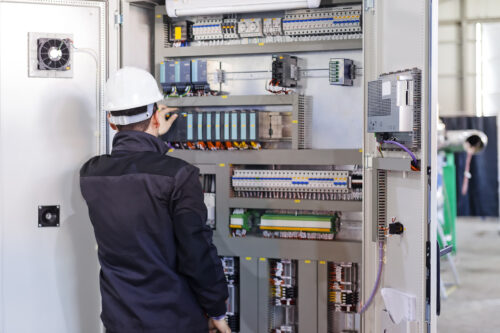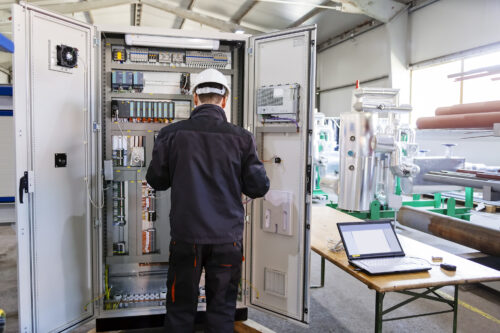A Guide to Effective Industrial Control Panel Usage
In modern manufacturing and automation applications, electrical control panels are used to direct the flow of electricity and automate the operation of machines. Due to their critical role, they must be designed and built to provide reliable performance even within demanding conditions. Otherwise, there is a risk of the system operating inefficiently and, in severe cases, failing unexpectedly. Below, we outline some of the best practices to follow to ensure your electrical control panels operate effectively, efficiently, and safely.
Regulate the Temperature of Your Industrial Control Panels
More than half of electrical component failures are a result of temperature issues within the system. As such, it is essential to select a properly sized cooling system for your control panel. An undersized cooling system may result in excessive heat, while an oversized system may result in excessive condensation and moisture conditions. Both situations can cause failure in control panel components—failure of thermally sensitive components when exposed to high temperatures or failure of moisture sensitive components when exposed to condensation stemming from low temperatures.
In addition to size, the design of your cooling systems should be appropriate for the environmental conditions within your facility. For example, control panels located in interior areas with a risk of exposure to dirt, dust, and non-corrosive liquids should have cooling systems with NEMA 12 enclosures.
There are three primary types of cooling systems used for industrial control panels:
- Fan-Cooled Cabinets: These cooling systems utilize fan or filter mechanisms to bring cool air into the panel and expel hot air from the panel. They are relatively low cost and suitable for use in limited space applications.
- A/C-Cooled Cabinets:These cooling systems feature air conditioning units mounted to the outside of the enclosure. They are closed systems, meaning the internal environment is separated from the rest of the facility.
- Air-to-Water Heat Exchangers: These cooling systems contain closed-loop fan and radiator mechanisms. They use chilled water to lower the temperature within the control panel.
Invest in Preventative Maintenance for Your Industrial Control Panels
Following proper design and construction guidelines ensures industrial control panels operate as intended. However, it is also important to regularly service industrial control panels as their components can become dirty or worn over time, which can affect their ability to function effectively.
Whether your control panel is small with few components or large with many components, establishing a regular maintenance schedule performed by qualified personnel is highly recommended as doing so can help identify and resolve issues before they become larger and most costly problems. A typical maintenance program may include cleaning components, inspecting components for wear or damage, and adjust, repairing, or replacing components as needed. These steps can be performed in one appointment for smaller panels or across multiple appointments for larger panel systems.
Partner With CCK Automations for Your Industrial Control Panel Needs
Control panels serve a critical role in a wide range of industrial applications. Ensuring they perform and operate as intended necessitates both careful design and regular maintenance. By keeping in mind the tips mentioned above, you can avoid system malfunctions and shutdowns that can cost you significant time and money. Additionally, partnering with an experienced and knowledgeable control panel manufacturer can help you design and build a product solution that meets your exact needs.
At CCK Automations, Inc., we’ve manufactured high-quality electronic products—including industrial control panels—for over 20 years. This experience, combined with our talented employees and UL 508A certified panel building shop, enables us to engineer custom products for virtually any customer application. To learn more about our industrial control panel capabilities or discuss your requirements with one of our team members, contact us today.
